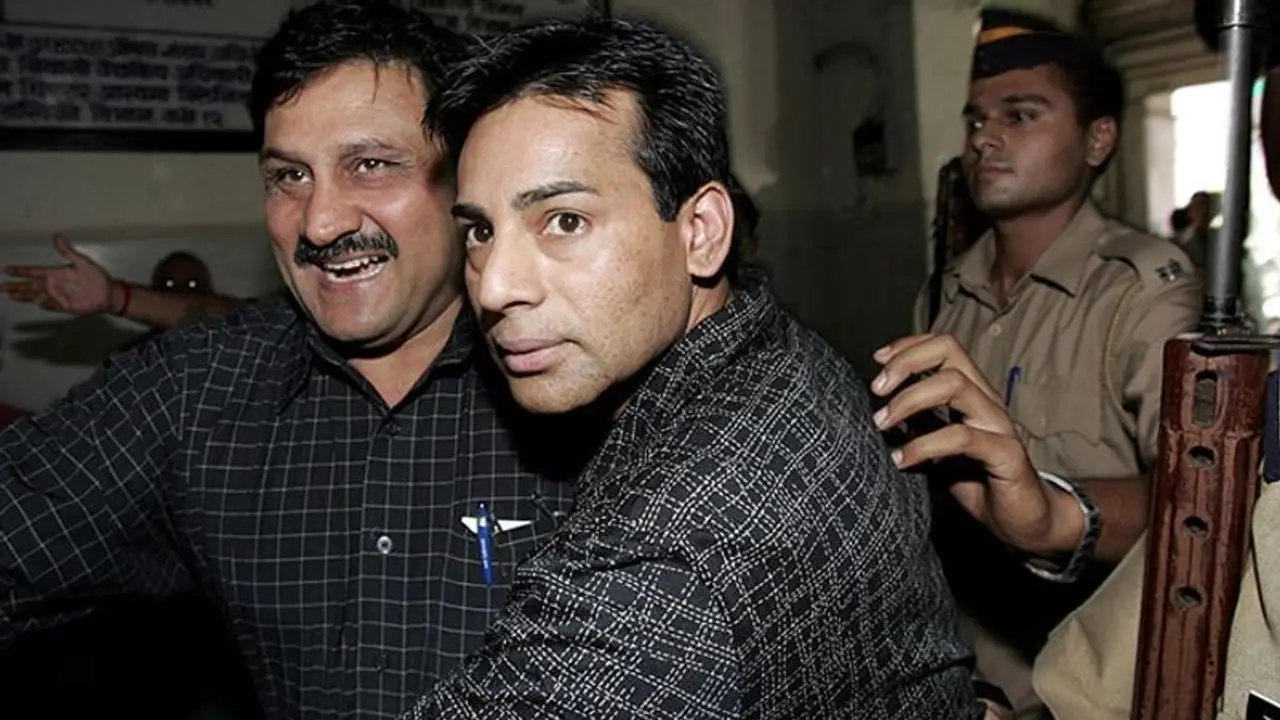The Supreme Court on Monday said the Centre is bound to honour its commitment given to Portugal and release gangster Abu Salem on completion of his 25-year sentence in the 1993 Mumbai blasts case.
The Centre must release criminal Abu Salem after serving his 25-year term in the 1993 Mumbai bombings case, according to the Supreme Court's ruling on Monday.

Salem said that under the assurances given by India to Portugal for his extradition in 2002, his sentence could not be longer than 25 years. L K Advani, who was vice prime minister at the time, had assured Portugal.
A bench of Justices S K Kaul and M M Sundresh said the Central government is bound to advise the President of India for exercise of power under Article 72 of the Constitution and the national commitment on completion of his sentence.
"The necessary papers be forwarded within a month of completion of 25 years. In fact, the government can itself exercise the power of remission under CrPC within the time period of one month upon completion of 25 years," the bench said.
The question of whether the Union of India will uphold its pledge from December 17, 2002 will only come up when the 25-year time is about to expire, which is November 10, 2030, the Center had previously informed the Supreme Court.
Salem was sentenced to life in prison on February 25, 2015, in a separate case for the 1995 slayings of Mumbai-based builder Pradeep Jain and his driver Mehndi Hassan.
After a protracted legal battle, Salem, who was also convicted in the 1993 Mumbai serial blasts, was extradited from Portugal on November 11, 2005.
Also read: 'Don't need lecture': Supreme Court slams Centre in Abu Salem case
The top court had on May 5 postponed its decision in the case, in which the Center had argued that the executive should make a decision about the solemn sovereign promise given to the Portugal government during Salem's extradition because the judiciary is independent of it.
Appearing for the Centre, Additional Solicitor General K M Nataraj had told the court that the "government is bound by the solemn sovereign assurance given by then deputy Prime Minister L K Advani to the Portugal government and it will abide by it at an appropriate time".
He had argued that the solemn assurance does not bind the court and it can pass orders as per the law.
"Solemn sovereign assurance cannot be forced on the judiciary. The Executive will act on it at an appropriate stage. We are bound by the solemn sovereign assurance in this regard. Judiciary is independent, it can proceed as per law," he had said.
The court should decide on the solemn guarantee and reduce Salem's sentence from life to 25 years, the bench had informed Nataraj. Alternatively, the court could order the government to consider whether to rely on the assurance given during Salem's extradition.
The top court had noted that the second issue involved a set-off time because the argument presented at the bar was that Salem was detained in Portugal pending extradition to India after being arrested in Portugal as a result of a red corner notice issued on the court's directions.
Nataraj had contended that several rulings stated that a life sentence meant forever and that there could be no pardon.
Malhotra had contended that the guarantee was made in plain words that Salem would not receive the death penalty or a sentence of more than 25 years in jail if he were extradited by Portugal to be tried in India.
"The said solemn assurance dated December 17, 2002, was further reiterated by way of supplementary assurance by the Ambassador of India to the Government of Portugal on May 25, 2003, with a further assurance that the appellant will not be prosecuted for offences other than those for which his extradition has been sought," he had said.
In June 2017, Salem was convicted and later awarded life sentence for his role in the 1993 serial blasts case in Mumbai.
On March 12, 1993, the country's commercial capital had witnessed an unprecedented attack with 12 explosions that took place one after another in about two hours. The dastardly attacks had left 257 dead and 713 people seriously injured, and destroyed properties worth crores.
Also watch: Ujjwal Nikam: Pakistan was actively involved in Mumbai 1993 blasts
(With inputs from PTI)
